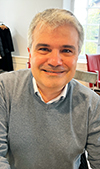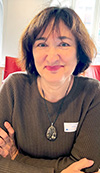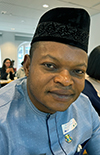Delving into Higher Education with the Enhancing Higher Education Program
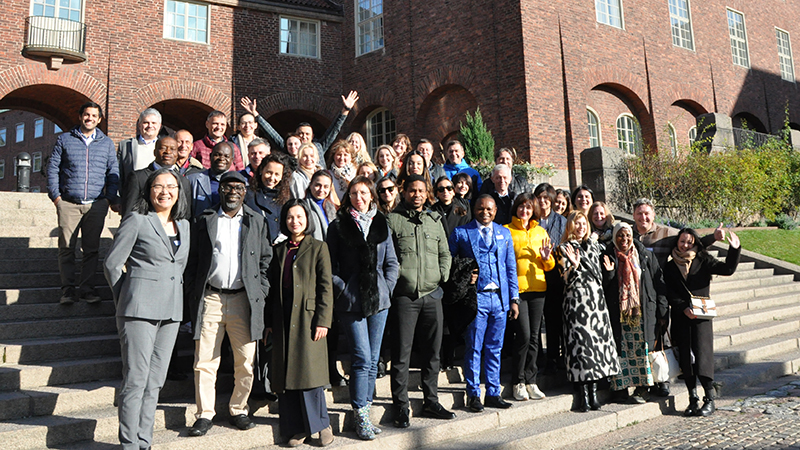
Learning in STEM, from the Department of Learning in Engineering Science, in collaboration with the International Relations Office hosted a week-long capacity-building training program called the Enhancing Higher Education program.
Thirty-eight educational leaders from Georgia, Germany, Portugal, Nigeria, and Ukraine, attended the various workshops and presentations facilitated by KTH educators and researchers covering different aspects of educational concepts. They networked, collaborated in groups, and shared experiences to begin their own explorations of educational transformation within their respective universities and institutions.
The week included
- The “Quality Assurance workshop” explored quality assurance processes from national to course level, with an emphasis on high-quality education and research.
-
The ”Enhancing Higher Education workshop” discussed educational arenas, faculty development, societal cooperation, and active student participation in educational development.
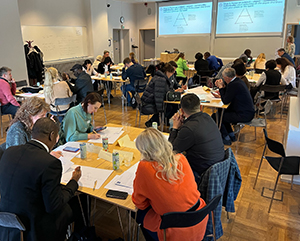
- ” Sustainable Development in Education” looked at the urgency of integrating sustainability into higher education, highlighting its impact, challenges, and practical practices in relation to the Sustainable Development Goals.
- ” Digital Learning in Higher Education” explored institutional strategies for digital transformation, emphasising the pedagogical use of digital technologies and the creation of accessible digital content.
- “Rethinking Engineering Education” introduced the “CDIO approach”, which aligns engineering education with professional practice, technical fundamentals, and student competence.
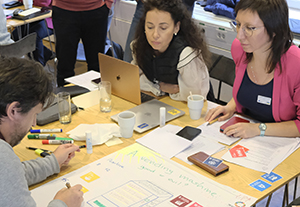
- ” Cost-effective Educational Development” addressed the challenges of traditional teaching paradigms to improve student learning without increasing teacher workload.
- Student involvement as a fundamental part of the university's development was highlighted in the "Student Influence at KTH"presentation.
- The final presentation “Framework for Future Education” presented the new KTH change program that provides a long-term, holistic perspective to structure and ensure the continuous improvement of higher education at KTH.
Trained over 350 participants
The program has evolved significantly since 2016 and has trained over 350 participants from 19 countries. Enhancing Higher Education measures its impact by cultivating a "train-the-trainer" mindset, equipping participants with tools to instigate change in their own institutions. Innovative teaching methods and strategies often emerge from the program's sessions and workshops. Since its conception, the collaboration with KTH’s International Relations Office has been essential in the feasibility of the activities.
Workshop leaders and participants often learn by expanding their own toolbox and listening to challenges and success stories from other participants. The program serves as a collection of examples directly linked to education and the future of education at KTH.
Interview with Viktor Kordas
Who is the Senior Advisor International Projects and has been involved from the start of the program.

